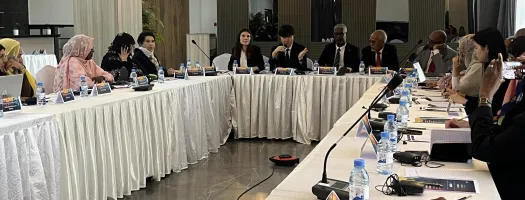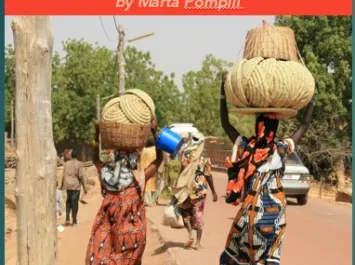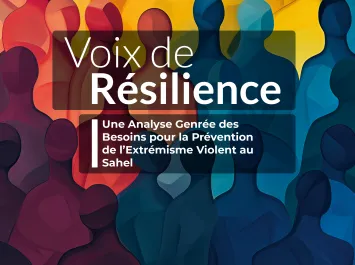On 9 April 2025, in Nouakchott, Mauritania, UNICRI held the closing event of its project Gender-Based Discrimination and the Prevention of Violent Extremism (PVE) in the Sahel, generously funded by the Republic of Korea through the Korea International Cooperation Agency (KOICA).
The event brought together key stakeholders including representatives of the Korean Embassy, international actors, gender and PVE experts, the project’s direct beneficiaries, and the project’s main local partners – the Commissariat aux droits de l'homme, à l'action humanitaire et aux relations avec la société civile and the Antenne nationale de lutte contre la radicalisation et l'extrémisme violent (CELLRAD). The event fostered open discussions to reflect on the outcomes and impact of the initiative, share lessons learned, and identify priorities for future gender-responsive PVE initiatives in Mauritania.
Launched in early 2023, the project aimed to promote gender-responsive approaches to preventing violent extremism in Mali, Mauritania, and Niger. UNICRI conducted in-depth research across the three countries to examine the links between gender inequality, insecurity, access to services, and the drivers of violent extremism. This data collection effort culminated in the publication of the report Voices of Resilience: A Gender Needs Analysis on Preventing Violent Extremism in the Sahel, which shed light on the lived experiences of women and girls, men and boys, and the ways in which systemic gender-based discrimination contributes to community vulnerabilities.
Building on these findings, UNICRI developed a Gender and PVE Training Manual and delivered four targeted workshops in Nouakchott in 2024–2025. These capacity-building activities reached a total of 100 beneficiaries, including 46 women and 54 men from national authorities, civil society organisations, media outlets, and religious networks and institutions. The interactive workshops enhanced participants’ understanding of how gender roles and inequalities influence the risks and impacts of violent extremism. Sessions focused on integrating gender perspectives into PVE strategies, aligning local efforts with international frameworks on Women, Peace, and Security, and addressing community-specific needs in both urban and rural contexts. Participants explored the role of education, economic empowerment, inclusive media, and religious guidance in strengthening community resilience. Post-training assessments showed significant gains in knowledge and awareness across all groups and the feedback received highlighted the relevance and significant positive impact of the workshops on participants' ability to contribute to PVE efforts within their communities.
The closing event served not only to present the project’s achievements but also to reinforce the importance of continued collaboration between local actors and international partners. To this end, the roundtable session with representatives of the project’s direct beneficiaries provided an opportunity to discuss needs and challenges to be addressed by future initiatives. Stakeholders emphasized the need to sustain momentum through follow-up efforts, deeper community engagement, actions targeting rural and border areas, and inclusive strategies that address the gendered dimensions of violent extremism.
More information about the project are available here.


